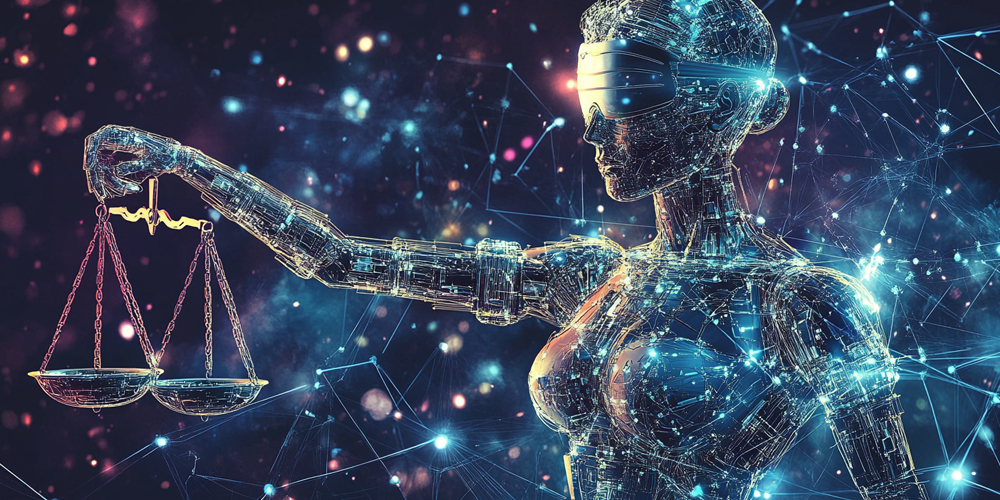Artificial intelligence (AI) is reshaping our world in profound ways. As AI systems become integral to various aspects of life, the importance of ethical AI development cannot be overstated. This article explores why ethics in AI matters, the challenges we face, and how to implement ethical practices effectively.
Understanding Ethical AI Development
Ethical AI development involves creating systems that prioritize fairness, transparency, and accountability. These principles guide developers to ensure that AI benefits everyone.
Core Principles of Ethical AI
To grasp the significance of ethical AI, we must examine its core principles:
Fairness: AI systems must treat all users equally, without bias. This principle helps prevent discrimination against marginalized groups.
Transparency: Users should understand how AI systems make decisions. Transparency fosters trust and allows for informed choices.
Accountability: Developers must take responsibility for the outcomes of AI systems. Clear accountability mechanisms are essential for addressing issues that arise.
By adhering to these principles, developers can create technologies that serve humanity positively.

The Current Landscape of AI
AI technology is advancing rapidly, presenting both opportunities and challenges. While it can enhance efficiency and drive innovation, it also raises ethical concerns that need addressing.
Opportunities Presented by AI
AI offers substantial benefits across numerous sectors:
Healthcare: AI improves diagnostics and patient care through advanced data analysis. It can predict patient outcomes, leading to better treatment plans.
Finance: In the finance sector, AI algorithms analyze market trends and assess risks, facilitating informed investment decisions.
Education: AI personalizes learning experiences, catering to individual student needs and improving educational outcomes.
These opportunities highlight the potential of AI to make significant positive impacts on society.
Challenges and Ethical Concerns
Despite its benefits, AI development poses ethical challenges:
Bias in Algorithms: AI systems can perpetuate existing biases present in training data. This bias can lead to unfair treatment in areas like hiring or lending.
Lack of Transparency: Many AI systems operate as “black boxes,” making it difficult for users to understand how decisions are made. This opacity can erode trust.
Job Displacement: As AI automates tasks, there is concern about job loss. Ethical considerations must address how to support displaced workers.
Recognizing these challenges is vital for developing ethical AI.
Implementing Ethical AI Practices
To foster ethical AI development, organizations can adopt several strategies:
1. Establishing Ethical Guidelines
Organizations should develop clear ethical guidelines for AI development. These guidelines should be rooted in the core principles of fairness, transparency, and accountability.
Creating a Framework
A robust ethical framework includes:
Defining Objectives: Clearly articulate the goals of AI projects to ensure alignment with ethical standards.
Involving Stakeholders: Engage diverse stakeholders, including ethicists, to provide input during the development process.
Regular Reviews: Conduct periodic reviews of AI systems to assess compliance with ethical guidelines.
These steps create a structured approach to ethical AI development.
2. Promoting Diversity and Inclusion
Diversity in AI development teams is essential for mitigating bias. Including individuals from various backgrounds brings different perspectives, enhancing the design process.
Benefits of Diverse Teams
Diverse teams can:
Identify Biases: Team members with different experiences are more likely to spot potential biases in algorithms.
Enhance Innovation: Varied viewpoints contribute to creative problem-solving and innovative solutions.
Promoting diversity leads to more equitable AI systems.
3. Educating Developers on Ethics
Training developers in ethical considerations is crucial. Organizations should provide educational resources that emphasize the importance of ethical AI.
Components of Ethical Training
Effective training programs should include:
Case Studies: Analyze real-world examples of ethical dilemmas in AI development to illustrate potential pitfalls.
Workshops: Conduct interactive workshops to discuss ethical scenarios and decision-making processes.
By equipping developers with ethical knowledge, organizations can foster a culture of responsibility.
4. Implementing Transparent Practices
Transparency is vital for building trust in AI systems. Organizations should aim to make their AI processes more understandable to users.
Strategies for Transparency
To enhance transparency, organizations can:
Provide Clear Documentation: Create user-friendly documentation explaining how AI systems work.
Encourage User Feedback: Establish channels for users to provide feedback on AI systems, promoting an open dialogue.
These strategies improve user understanding and trust.
5. Monitoring and Accountability
Establishing monitoring mechanisms is essential for ethical AI. Organizations should hold themselves accountable for the impacts of their AI systems.
Accountability Measures
To ensure accountability, organizations can:
Track Outcomes: Regularly monitor the outcomes of AI systems to identify unintended consequences.
Set Up Review Committees: Create independent review committees to evaluate AI projects for ethical compliance.
These measures reinforce the commitment to ethical AI development.
Real-World Examples of Ethical AI
Several organizations are leading the way in ethical AI development. Their practices can serve as models for others.
1. Microsoft’s AI Ethics Framework
Microsoft has established an AI ethics framework that emphasizes fairness, reliability, privacy, and inclusiveness. They provide guidelines for developers to create AI responsibly.
Key Initiatives
Microsoft promotes ethical AI through initiatives such as:
Fairness in AI: Implementing tools to detect and mitigate bias in algorithms.
Responsible AI Standards: Setting standards for the ethical use of AI technologies.
These efforts position Microsoft as a leader in ethical AI practices.

2. Google’s AI Principles
Google has outlined a set of AI principles that guide its development processes. These principles prioritize social benefits, privacy, and accountability.
Highlights of Google’s Approach
Key highlights include:
Avoiding Harm: Commitment to avoiding the creation of AI technologies that could cause harm.
Inclusive Development: Ensuring that AI technologies benefit a broad range of users.
Google’s principles reflect a strong commitment to ethical AI.
Conclusion
The importance of ethical AI development cannot be underestimated. As AI technologies continue to permeate various sectors, the need for ethical guidelines becomes increasingly urgent. By prioritizing fairness, transparency, and accountability, we can ensure that AI systems serve society positively.
Organizations must adopt best practices for ethical AI, including establishing guidelines, promoting diversity, and implementing transparent processes. By doing so, they can create technologies that enhance human well-being and foster trust.
In a world driven by AI, embracing ethical development is not just a choice; it is a responsibility. By investing in ethical AI practices, we pave the way for a future where technology benefits everyone, ultimately creating a more equitable and just society.





